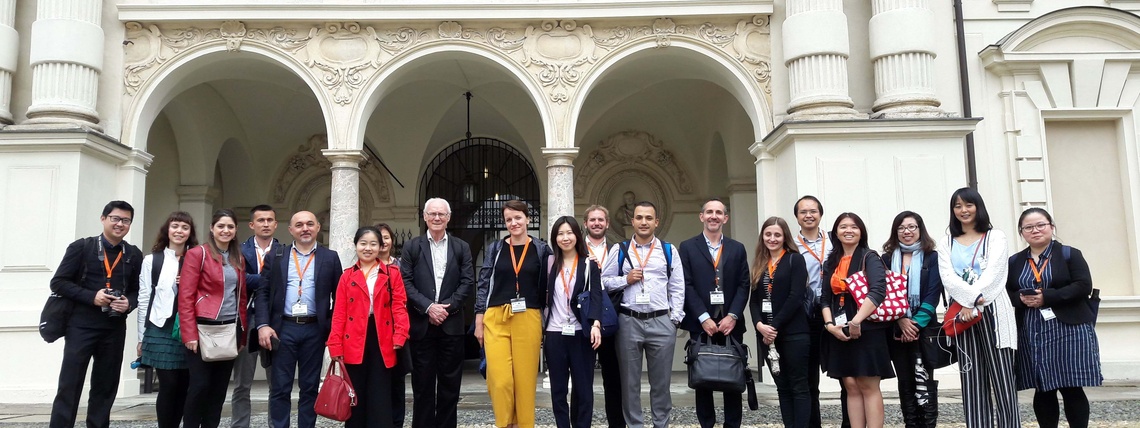The articles of the current edition are available on the new site.

“Internationalization and Research: How to measure and improve the impact of projects” is the topic of the International Staff Training Week recently organized by the Research Support Department and the International Affairs Department of Politecnico di Torino. Representatives of Universities from all over the world joined a week of training activities focused on the impact of international mobility and research projects. The starting point was the growing attention of the funding agencies towards the results related to the impact of projects, in particular by the European Commission for what concerns Horizon 2020 and Erasmus+ International Credit Mobility.
Twenty delegates from partner Universities took part in the event, coming from 14 European and non-European countries: Argentina, People’s Republic of China, Colombia, Israel, Japan, Lebanon, Malaysia, Russia, Serbia, United States, Uzbekistan, Vietnam, Netherlands and Poland. The crosscutting focus on impact attracted academic and administrative participants involved in management and support of research and mobility projects.
The week was opened with speeches by Francesca Verga, Vice Rector for International Affairs, Stefano Corgnati, Vice Rector for Research and Alberto Godio, Rector’s Advisor for Student Mobility and Erasmus+. In the following days delegates had the possibility to present their sending institutions and to join a series of workshops taught by experts on impact, participating actively and working in heterogeneous groups. The interaction generated stimulating debates on supporting international mobility and research within different national contexts; the outcome was a sharing of best practices on management of international mobility and research and on the dissemination of results. The training week ended with a job shadowing session at the Internationalization and Research Support Departments.
The main purpose of the International Staff Training Week was to consolidate the partners’ technical skills in management of European programmes aimed at internationalization and modernization of higher education systems. Meetings were also an occasion of sharing know-how on the Erasmus+ and Horizon 2020 programs, generating an impact on multiple levels: intercultural exchange and focused training (personal level); building and consolidating relationships with partner universities (institutional level); promotion of Politecnico and the city of Torino (local level).
The International Staff Training Week has been made possible thanks to funding from the Erasmus+ International Credit Mobility (KA107) project managed by the Erasmus+ Italian National Agency Indire. Almost all participants have been granted with Erasmus+ Staff Training scholarships